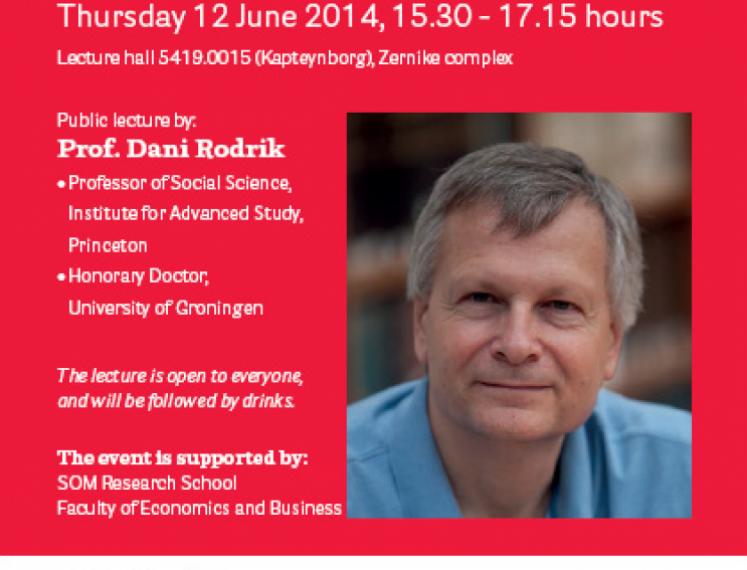
Kapteyn Borg (J)
Landleven 12, Lecture hall 5419.0015
Groningen
Nederland
The Future of Growth
Most economists nowadays agree that the level of economic development of a country ultimately depends on the quality of its government and the skills of its workforce. But what about China? Rodrik presents an alternative view.
The fast economic development of China and other East Asian countries does not seem to be simply the result of superior governance and high workforce skills. Similarly, the experiences of several Latin American countries
since the 1990s have shown that focusing solely on political and educational reforms does not necessarily produces rapid economic growth.
To account for these experiences, Prof. Rodrik, in his Maddison lecture, will propose an alternative way to think about the process of economic development. He will claim that there are two drivers of
economic growth in developing countries. The first is the “accumulation of fundamentals,” namely the build-up of workforce skills and the improvement of government institutions. The second is “structural
change,” namely the movement of labor from traditional to modern sectors of the economy. Achieving a high level of prosperity in the long-run requires the former. Yet, rapid economic growth can only come
from a swift process of structural change. Moreover, as Rodrik will explain, the set of policies that can improve the fundamentals may not always be appropriate to promote structural change and trigger fast growth. He will also discuss what
this view of economic development implies for the future of growth in the developing world and in particular in the world’s poorest region, Sub-Saharan Africa.
Dani Rodrik is the Albert O. Hirschman Professor in the School of Social Science of the Institute for Advanced Study in Princeton. He has published widely in international economics and globalization,
economic growth and development, and political economy. He is the author of “The Globalization Paradox: Democracy and the Future of the World Economy” (Norton, 2011) and “One Economics, Many
Recipes: Globalization, Institutions, and Economic Growth.” (Princeton, 2007). In June 2014 Dani Rodrik will be receiving an honorary doctorate from the University of Groningen as part of the university’s 400-year-anniversary celebrations. www.rug.nl/feb/rodrik
This lecture is organized by the Faculty of Economics and Business in co-operation with Studium Generale and the Economics and Business student Faculty association (EBF) of the University of Groningen.


